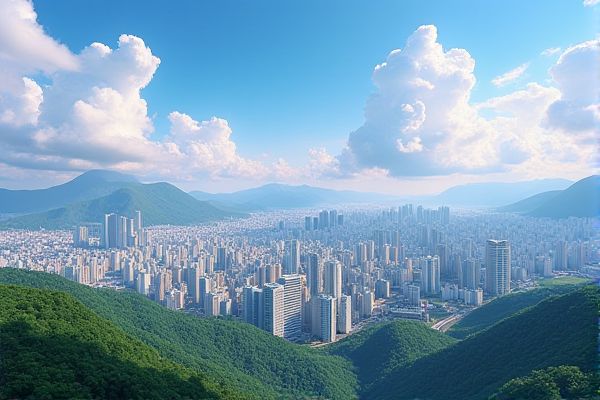
Cultural and recreational activities in South Korea: K-pop concerts and fan culture. Traditional festivals and holidays. Korean cuisine and street food. Historic palaces and temples. Korean cinema and film festivals. Shopping districts and night markets. Hiking and outdoor activities. Korean drama filming locations. Art galleries and museums. Karaoke rooms (noraebang) experiences.
K-pop concerts and fan culture
In South Korea, K-pop concerts are a significant part of the cultural and recreational landscape, with numerous events such as the 2024 KBS Song Festival, K-Wave Concert
Traditional festivals and holidays
In South Korea, traditional festivals and holidays are deeply rooted in ancestral and family traditions. Key holidays include Seollal (Lunar New Year), which involves respectful greetings to elders, traditional games, and special foods like tteokguk, and Chuseok (Korean Thanksgiving), a harvest festival where families gather for ancestral rites, visit graves, and enjoy traditional foods like songpyeon.
Korean cuisine and street food
Korean street food is a vibrant reflection of the country's culture, history, and community, offering a diverse range of dishes like Tteokbokki, Odeng, and Hotteok, which are not just tasty eats but also embody the nation's resilience, creativity, and social bonding. For a deeper dive into this culinary adventure, the [Art of Korean Street Food](https://nomadicsamuel.com/travel-blog/the-art-of-korean-street-food-a-culinary-adventure-in-south-korea) captures the essence of how these delightful street foods bring people together and tell a story beyond their flavors, highlighting the community’s innovative spirit and cultural warmth.
Historic palaces and temples
Historic palaces in Seoul, such as Gyeongbokgung, Changdeokgung, Changgyeonggung, and Deoksugung, offer cultural and recreational activities including guided tours, moonlight tours, and traditional performances. These palaces, particularly Changdeokgung, a UNESCO World Heritage Site, showcase the harmony between nature and architecture, and visitors can explore various halls, gardens, and historical sites.
Korean cinema and film festivals
South Korea is home to a vibrant film festival scene, with notable events like the Busan International Film Festival (BIFF), which promotes Asian and new directors, the Bucheon International Fantastic Film Festival (BiFan), focusing on horror, thriller, and fantasy films, and the Seoul International Women's Film Festival (SIWFF), highlighting films directed by women and addressing gender representation. These festivals, along with others such as the Korea Queer Film Festival and the Seoul International Film Festival, contribute significantly to the country's thriving film industry and cultural exchange.
Shopping districts and night markets
Seoul's night markets, including Dongdaemun, Myeongdong, and Seoul Bamdokkaebi, offer vibrant shopping and dining experiences that feature a wide range of fashion items, street food, and local artisanal products, making them must-visit destinations for both locals and tourists. These markets operate late into the night, providing a unique blend of modern and traditional culture. For more detailed insights into these bustling nocturnal hubs, A Guide to Seoul's Night Markets is an excellent resource for planning your visit to experience the best after-dark shopping and culinary delights.
Hiking and outdoor activities
Hiking is a national pastime in South Korea, with numerous trails offering diverse experiences. Notable hikes include the Daecheongbong Peak Course in Seoraksan National Park, the Jongju (Traversing) Course in Jirisan National Park, and the Jeju Olle Trail Route 10-1, each providing unique scenery and challenges. For more information on these breathtaking trails, explore the Best Hikes in South Korea guide that highlights the distinct beauty and adventure these routes offer. Whether you're climbing rugged peaks or meandering along coastal paths, South Korea's hiking trails promise an unforgettable outdoor experience.
Korean drama filming locations
This guide highlights 15 iconic K-drama filming locations in Seoul, including Bukchon Hanok Village, Seoul Land, Cheonggyecheon Stream, Paradise City Hotel, and Yonsei University, offering a mix of traditional, modern, and scenic backdrops that have been featured in numerous Korean dramas. Explore these mesmerizing spots and immerse yourself in the world of Korean television by visiting the Pelago website, a perfect resource for planning your next drama-inspired adventure. These locations provide a captivating blend of culture and innovation that beautifully frame the captivating narratives seen on screen, turning each visit into a memorable journey through the heart of Seoul.
Art galleries and museums
The National Museum of Modern and Contemporary Art (MMCA) and other prominent art galleries and museums in Seoul, such as the Leeum Samsung Museum of Art and the National Museum of Korea, offer a rich cultural experience with extensive collections of traditional, modern, and contemporary Korean and international art, along with rotating exhibitions, sculpture parks, and educational programs. For more information, explore the extensive offerings on the National Museum of Modern and Contemporary Art website.
Karaoke rooms (noraebang) experiences
Noraebang, or Korean karaoke rooms, offer a unique and enjoyable experience with soundproof private rooms, a wide variety of songs, and comfortable amenities like "U"-shaped sofas and snacks such as ramyeon and tteokbokki. These venues also often include alcoholic beverages and additional entertainment items like tambourines and drums, making them a popular social activity for both locals and tourists.
